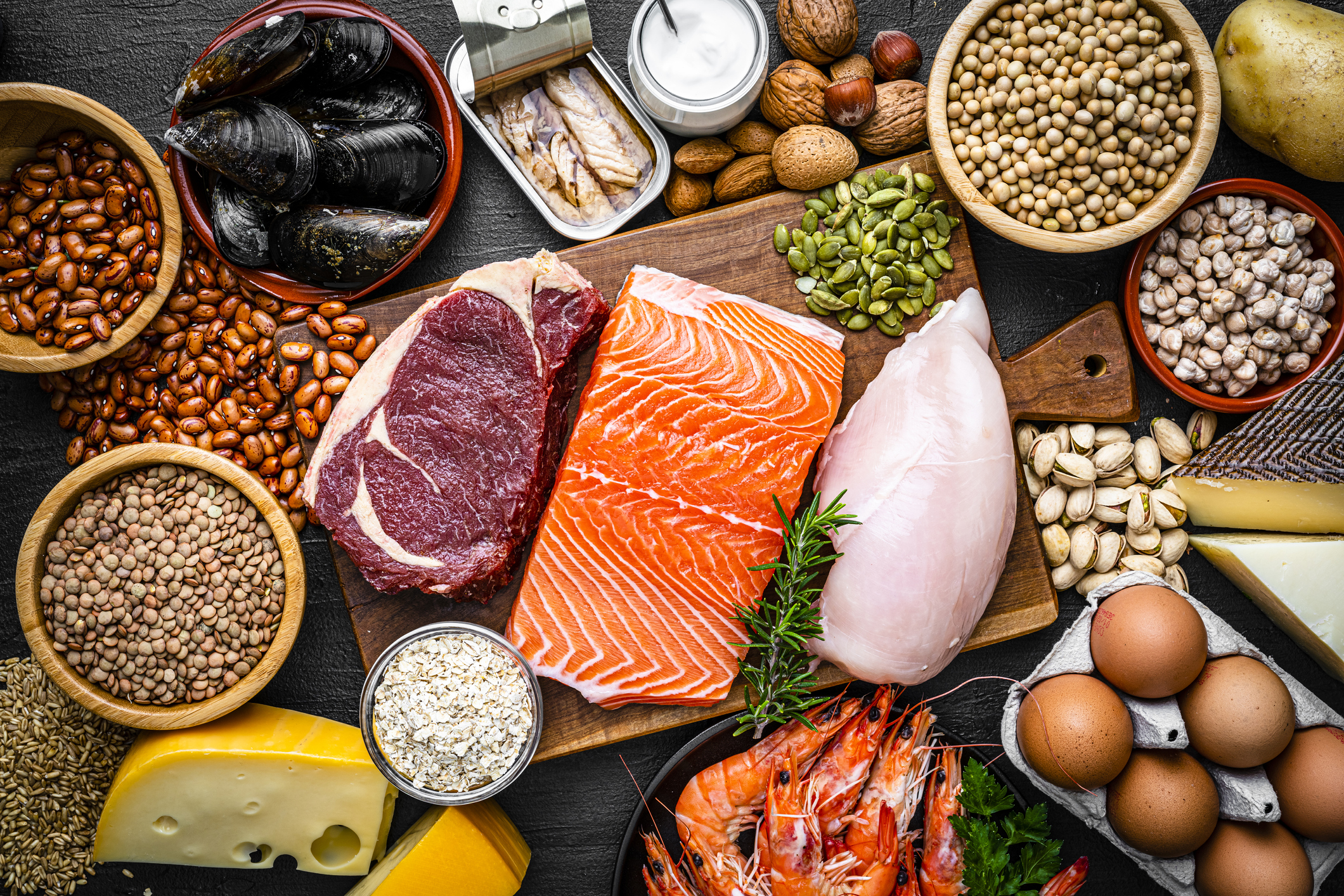If you want to build muscle, the benefits of protein shakes are clear: They’re a convenient and dense source of protein, and they can help you recover faster between workouts. But what if you’re working to lose a few pounds? Are protein shakes good for weight loss?
Tasty, portable, and quick to make, protein shakes provide a number of benefits that can help you lose weight, including helping you stay full while still sticking to your goals—and the research backs it up.
A study in the American Journal of Clinical Nutrition noted that over a 20-year period, diets higher in protein have been consistently successful in weight management. Regular protein intake (as part of a balanced diet that also includes adequate amounts of carbohydrates and healthy fats) can help with metabolism, appetite and calorie control, the researchers concluded.
Why Protein Shakes Are Good For Weight Loss
1. They can help you feel full
Protein helps provide satiety, says nutritionist Natalie Allen, RD, MS, a professor of health sciences at Missouri State University. This means it can help you feel fuller for longer, and when that happens, you should be able to control how much you eat more easily.
This is different from a drink like a fruit-only smoothie, which can fill you up for a short time, but then leave you hungry not long after. This is because while it will contain some fiber, it will mostly consist of carbohydrates that burn quickly.
2. They are usually low in calories
While it’s possible to make a protein smoothie into a high-calorie drink, many protein shakes are low in calories, Allen notes. This makes it easier to stick to your calorie goals for the day, but not feel deprived.
3. They help you maintain and build muscle mass
When you exercise and exert strength, you create tiny damage to your muscles, and the amino acids in protein help repair that tiny damage, which, over time, can make your muscles stronger. Protein shakes are an easy way to help with this process, says Allen.*
Which type of protein is best?
“Food is always your best bet for protein, as the nutrients and fiber in food are key,” says Allen. Lean, complete protein foods include options such as chicken breast, white fish, pork tenderloin, plain Greek yogurt, and tuna.
Even if you don’t eat animals, there are many sources of vegan protein that are high in essential amino acids, such as tofu, tempeh, buckwheat, edamame, hemp seeds, beans and nuts.
But it can also be difficult to get all the protein you need from food, especially when you’re busy. So boosting your daily protein intake with a protein shake is an effective way to ensure you’re getting enough, according to Allen.
If you are looking for a high quality protein powder without artificial sweeteners, colors or flavors, Beachbody Performance Recover available in whey and plant-based formulations, providing 20 grams of muscle-building protein, plus pomegranate extract to help reduce post-workout muscle soreness.*
Prefer an all-around nutrition shake that’s still high in protein? Psychology includes 16 to 17 grams of protein, plus fiber, probiotics, superfoods, and adaptogens that help improve digestion, provide healthy energy, and aid weight loss. It also comes in a composition without added sugar if you’re trying to cut down on the sweet stuff.*
Otherwise, you have many other protein powder options, including casein, soy, hemp, rice, and pea protein.
How Much Protein Do You Need?

Your protein needs depend on your goals. If you’re active and want to adjust your protein intake to meet your specific needs, aim for 0.5 to 0.9 grams of protein per pound of body weight.
If your workouts are particularly intense and frequent, this number can go up to 1.5 grams of protein per kilogram of body weight. The more you exercise, the more protein you need to maintain and build muscle.
“In general, women need 60 to 70 grams of protein per day and men need 70 to 80 grams per day, but that amount depends on activity and weight,” says Allen. “Also, it’s ideal to spread protein throughout the day. For example, if your protein needs are 60 grams per day, then aim for 20 grams at each meal.”
Protein shakes can help you achieve these numbers and allow you to leave your protein to be more efficient and filling.
*These statements have not been evaluated by the Food and Drug Administration. This product is not intended to diagnose, treat, cure or prevent any disease.
